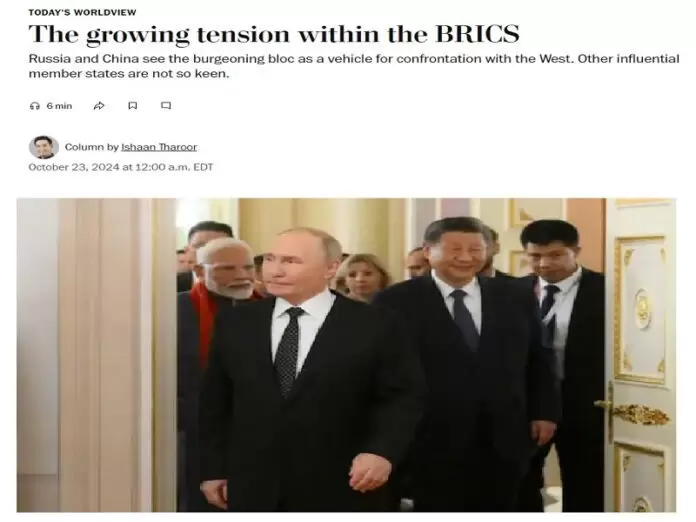The Washington Post’s Ishaan Tharoor published a provocative piece on Wednesday about “The growing tension within the BRICS”. The gist is that members are divided amongst themselves over their respective ties with the West, which might allegedly impede financial cooperation within their group. This prediction is predicated on a false premise, however, since BRICS won’t realistically become a political actor so such differences between its members won’t adversely affect their working relations.
It was explained late last month how “BRICS Membership Or Lack Thereof Isn’t Actually That Big Of A Deal” since the group is just a voluntary association of countries that don’t surrender any sovereignty to a central authority so even non-members can coordinate their policies with its members if they want. The only benefit to BRICS membership is directly participating in the group’s discussions about various voluntary proposals while others just observe their talks or hear about the outcome sometime later.
Even though Putin previously hinted at the political role that BRICS can play amidst the global systemic transition, this can be interpreted in hindsight as just an observation about the impact of its members coordinated policies to accelerate financial multipolarity processes and not part of a master plan. The reason why the passages that Tharoor cited should be seen in this way is because of what Putin himself told top BRICS journalists during his meeting with them in the run-up to the Kazan Summit.
He explicitly channeled Indian Prime Minister Narendra Modi, whose country officially considers itself to be the “Vishwamitra” (friend of the world), to tell them that “BRICS is not an anti-Western alliance; it is simply non-Western.” This was soon followed up by Foreign Minister Sergey Lavrov politely correcting Kazakh President Kassym-Jomart Tokayev for allegedly being of the view that BRICS aspires to become an alternative to the UN. These statements debunk Tharoor’s claim about the Kremlin’s intentions.
All that BRICS does is gather together some of the world’s largest economies like China and India, key energy players like Russia and the UAE, and some of the world’s most promising emerging economies like Brazil and Ethiopia for voluntarily coordinating their efforts to reform the global financial system. The economic and political asymmetries between them limit the extent of multilateral cooperation, but they can still find some common ground, and key bilaterals and minilaterals can go even further in this regard.
The fact is that all BRICS countries have a shared interest in this despite the differences between them, including their respective ties with the West, which is why Tharoor’s prediction about these differences impeding financial cooperation won’t come to pass. The sooner that everyone corrects their misperceptions about BRICS’ intended function in the global systemic transition, the sooner that more accurate analytical and journalistic products will enter the global discourse to everyone’s benefit.








